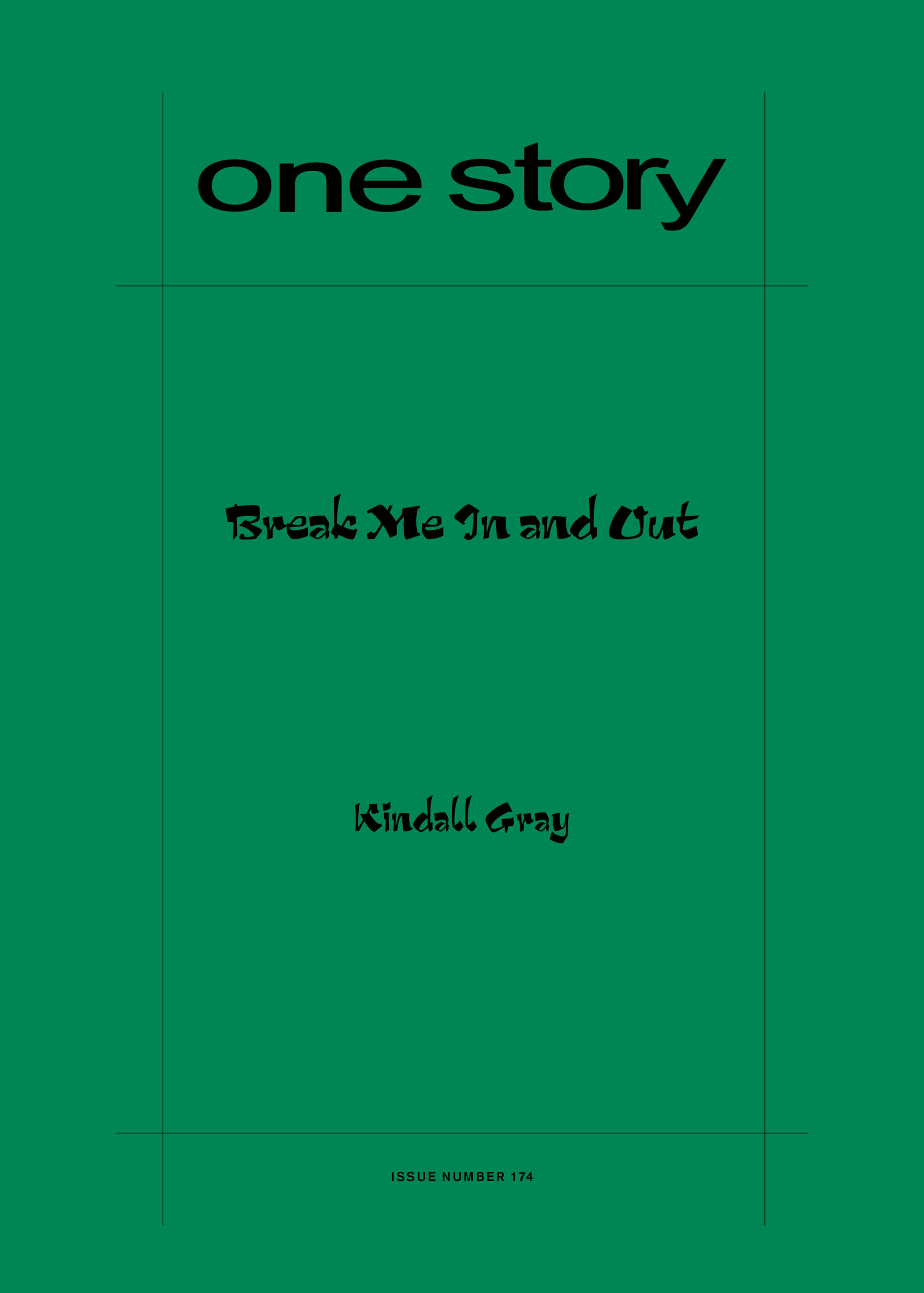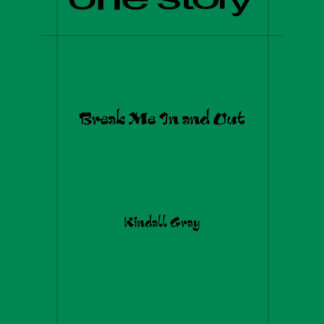
Break Me In and Out
$2.50
62 in stock
Excerpt
On the first day of summer, I go for a long bike ride around the neighborhood. I cycle past houses, past gas stations, and past my elementary school, which seems strangely deserted, except for a piece of colorful paper flapping against a lamppost. I’m sure it wasn’t there the day before, when I finished fourth grade. I would have noticed. I notice things. So I stop to take a closer look.
It’s a poster. A poster advertising the reptile show that comes to the Recreation Hall in Phoenix every July, with a fuzzy, black and white image of a monitor lizard and beneath the words: ONE DAY ONLY! My heart pounds. The sunshine burns my eyelids. The poster comes off the lamppost without a tear and I fold it up, stuffing it into the top of my skirt.
Kindall Gray
Kindall Gray received her MFA in Creative Writing from the University of Arizona in 2010. She lives in Tucson, where she teaches English at Pima Community College and acts as assistant fiction editor at the literary journal Cutthroat. Kindall is currently at work on a short story collection.
Q&A by Karen Friedman
- KF: Where did the idea for this story come from?
- KG: This story came when I was at my wit’s end, in terms of writing. I was working on a novel project that just wasn’t clicking, and I thought to myself, “I’m going to write something light, fun, no pressure.” So I started creating character webs and Toby came along, and immediately I knew Toby was attached to Edilio. The characters arrived as a pair, if that makes sense. I couldn’t write one without the other. After creating the character webs (kind of a mapping of character traits, actions, etc), I started writing, and, even though the story became much more serious than I had originally intended, it really was fun to write. Toby and Edilio kind of just created themselves on the page. I know that sounds cliché, but in this case, it was true.
- KF: The first time I read your story Edilio’s description of crossing the desert to America was the part that really hooked me. It is in many ways the emotional heart of the entire story. I know you live in Arizona, where illegal immigration is something of a hot topic. Did politics shape your portrayal of Edilio? If so, how?
- KG: I live in a state that criminalizes and racially profiles undocumented immigrants through SB1070. I also live in a state where there are all these people—the undocumented—living among us, and they have hopes and dreams and want to live normal lives, yet they’re marginalized, pushed to the fringes, exploited sometimes, because of their status. And they have this drive to be here—here, in the States—a desire made evident by the lengths they go, the distances they travel. The story of Edilio’s journey humanizes him, in a certain way, and it also shows what a strong constitution he has, mentally and physically. His journey across the desert is so risky! I mean, he has no idea what is waiting for him on the other side. I think I just wanted to portray that bravery, and also his desire for a new life. I wanted to make “Break Me In and Out” a human story that didn’t feel overly political, though obviously the politics come into play, since I am personally opposed to SB1070, and bills like it.
- KF: Where did Toby’s love of monitor lizards come from? Was it something you knew immediately about her or did you discover it through the drafts?
- KG: Like everything else in this story, the monitor lizard was a gift from the Writing Gods! But, I won’t give them all the credit. I attended a Lizard Expo with my mom and sister and niece five years ago, and there was a huge monitor lizard stuck in a pen. We were so excited to see this enormous creature, beautiful and strange and green, but as we got closer, we noticed its mouth was wired shut, and it’s claws were broken. There was just something so sad about it—how weathered it was. It wasn’t really beautiful up-close, only from faraway. My niece’s disappointment was especially poignant, because it was this moment when she was forced to confront the truth versus the fantasy. The lizard was definitely in the first draft, although I only figured out how it connected to Toby and Edilio, in the context of the story, after many drafts.
- KF: What was the most challenging aspect of writing this story?
- KG: The structure was very difficult. I found it hard to organize the events in the story in a way that increased tension and suspense but didn’t feel gimmicky.
- KF: So much of the story revolves around storytelling and Toby’s ability to determine the truth in what she is told. What role, if any, does faith have in Toby’s judgment?
- KG: In the story, Toby is looking for spiritual nourishment through God, literal nourishment through food, emotional nourishment through human connection, and she finds a lot of that in Edilio. He talks about God with her, for instance, when nobody else seems to. So, Toby is interested in faith, and, she has a kind of blind faith that things will work out. She believes her mother will take her to reptile show, that Edilio will stick around, that the lizard will be as wonderful as she remembered, that her bike lock will work. By then end, of course, her faith is a little shattered.
- KF: What do you think happens to Toby after the story?
- KG: I think she’ll continue to be curious, empathetic, and interested in stories. She’ll continue to struggle to find connection, meaning, faith, in grim situations. Maybe she’s a writer!
- KF: What are you working on now?
- KG: A collection of stories, including “Break Me In and Out,” as well as a cycle of linked stories about a sailor, a sword swallower, and a woman who loves both of them.
- KF: What is the best bit of advice about writing you have ever received?
- KG: My friend and mentor, writer Beth Alvarado, has always emphasized to me the importance of making time for your work. She also told me once that you should never just write a novel or story in order to play out a single dramatic plot point—for instance, infidelity, or murder—because the characters won’t be real and they won’t come to life if they’re just there to perform actions. You have to give them emotional depth, complication—and a great premise or plot does not necessarily mean great characters. The plot is only part of the equation.
